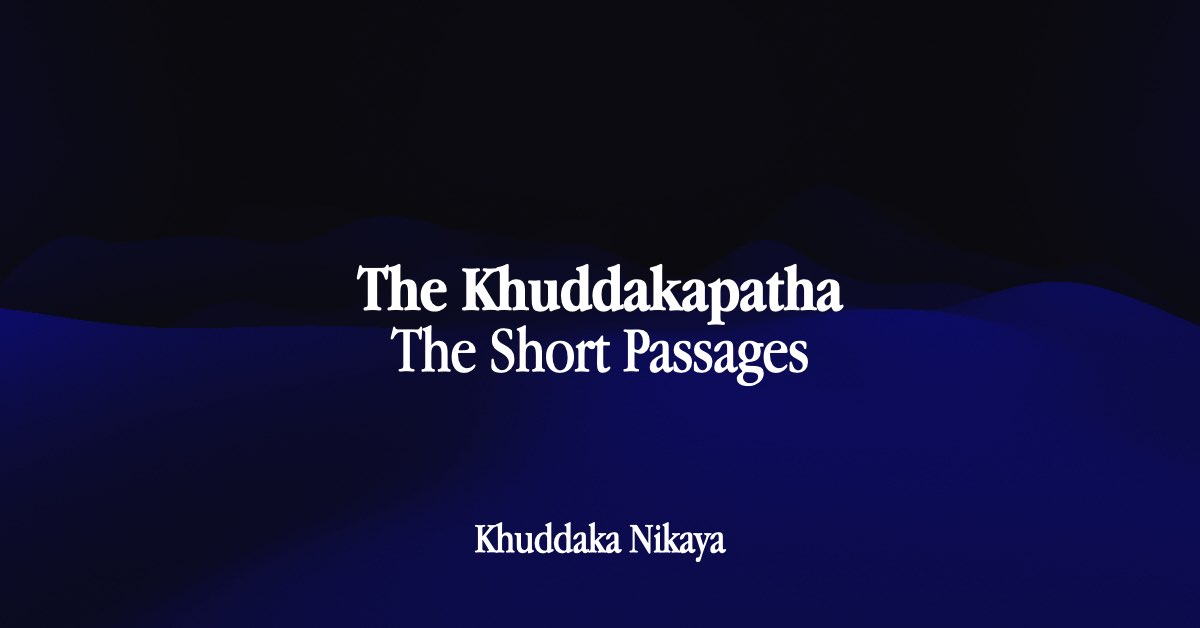The Khuddakapatha – The Short Passages

The Khuddakapatha is a Buddhist text that is part of the Pali Canon, the collection of scriptures that form the religious texts of Theravada Buddhism. The text consists of nine short chapters and is believed to have been written in the 5th or 6th century BCE.
An Introduction to the Khuddakapatha
The Khuddakapatha is a popular text among Buddhists, as it provides a concise overview of the basic principles of the religion. It covers topics such as morality, mindfulness, and the importance of developing a compassionate heart. The text also includes many traditional Buddhist stories and parables, which are used to illustrate key points and provide practical guidance for daily life.
The Chapters of the Khuddakapatha
The Khuddakapatha is divided into nine chapters, each of which focuses on a specific aspect of Buddhist practice. The first chapter is called “The Shorter Discourse on Blessings” and is a collection of blessings and protective spells. The second chapter, “The Shorter Discourse on Protection,” provides guidance on how to protect oneself from harm and negativity. The third chapter, “The Shorter Discourse on the Body,” focuses on the importance of taking care of the body and maintaining good health.
Title: The Importance of the Khuddakapatha in Buddhist Practice
The Khuddakapatha is an important text for Buddhists, as it provides a foundation for the study and practice of the religion. It is often recited by monks and laypeople alike, and is considered to be a source of spiritual inspiration and guidance. In many Buddhist communities, the Khuddakapatha is recited regularly as part of daily religious practice, and is seen as an essential part of the path to enlightenment.
Title: The Legacy of the Khuddakapatha
Despite its relatively short length, the Khuddakapatha has had a lasting impact on Buddhist thought and practice. It has been translated into many different languages and is widely studied and discussed by scholars and practitioners of Buddhism. Additionally, the stories and parables contained in the text have become an important part of the literary and cultural heritage of Buddhist societies. The Khuddakapatha continues to be a valued and revered text in the Buddhist tradition.


